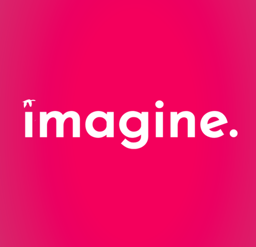I've coached lots of Nigerian Engineers for Tech jobs in Europe - here's what I've learned
Meet Adibeli. She’s a VP of Operations & Finance at Blinkist, one of the first and still most successful Berlin tech startups.
Born to a German mother and a Nigerian father, Adibeli has lived in Germany and Nigeria, and studied at Cambridge and Harvard. Before Blinkist, she helped scale Zalando’s commercial app and before that she led growth for iROKOtv in Lagos.
Over the years, she’s coached many Nigerians into roles in Tech in Europe. That’s why we sat down with her to learn from her experiences.
“There are many Nigerian developers and product folks in Europe, and they are here because they are excellent engineers. You can be one of them”.
Imagine: Hi Adibeli! You’ve seen countless CVs from Nigerian folks looking for tech jobs in Germany. What’s the most common advice you give to your mentees?
Adibeli: Hi Johann! I’ve seen so many talented people but not all of them know how to present that talent in a CV so that Europeans will recognize their value. Nigerians tend to be storytellers, with long, detailed CVs. In Europe, especially Germany, people want it brief! The punchier the better. Here are my top 3 tips:
- Drop all of these things, immediately: Don’t waste the first half page of the CV with personal details: Drop your religion, marital status, your place of birth, even date of birth, and state of origin. Yes, even drop your address in Nigeria, the employer won’t come to visit…, so cut it. Just give them your email and one (yes only one!) phone number.
- Shorten your CV to 1 single page. Find a good 1-page CV template (Google offers many for free) & stick to the 1 page. Yes, you’re proud of all your skills, certificates, and achievements to date. But nobody will take the time to read through all of them, and much worse, by including irrelevant detail you will confuse any HR manager. So focus only on what matters for that job. And spell check!! Instead, start with job experience (and list only relevant jobs, see also #3), then education, then your tech stack and skills, and then finally also list a relevant selection of your certificates. Not all.
- Select only relevant jobs you worked & describe your impact. Many Nigerians are hustlers and have had many different types of jobs, but for your CV, focus on the relevant ones. Start with your current (tech or product) job and list the last 3-4 jobs in tech only. For each job, say your title and your stack, and list 1 business goal you helped accomplish with your team. For example: Junior Software Developer, Javascript, Node.JS, SQL, Git, 5x-d user engagement (DAU and engagement/day) in our core product. Look at the job specs and see if you can tweak your CV to the particular role by highlighting those experiences that match the role requirements closely.
Imagine: What about communication? How do you recommend should folks applying from Nigeria approach emails with HR?
Adibeli: Be brief & direct. Emails should be friendly, brief and direct, and written in proper English. Don’t use Whatsapp English like “how r u”. While generally, the language is less hierarchical in Europe, recruiters do expect proper sentences, punctuation, and spelling (there are free tools like Grammarly for that - use them).
-> Check out our AI-based cover letter tool to write pitch-perfect application emails
In Europe, hierarchies are often flatter and that’s reflected in the language. For example, I’d recommend you drop turns of phrase like:
- ❌ Dear Sir/Madam, Ma’
- ❌ To whom it may concern
- ❌ Humbly
- ❌ Respectfully
Instead, write:
- ✔️ Dear Mr/Mrs. X, or Dear HR Team
- ✔️ Use first names, e.g. “Dear Tim”
- ✔️ Best, or Best regards
Such communication creates a power imbalance between you and your interview partner. Of course, they have a job, and you want it. But they also want something and that might just be you. You’ll appear like a more attractive candidate if you’re a confident equal. As a qualified engineer or product manager, companies in Europe expect you to know your strengths, your skills, a clear reason for seeking relocation or a remote job with them, and more.
Imagine: How about presenting yourself in interviews, any advice?
Adibeli: be really clear about what you want from a job.
❌ Never say things like: “I will do any work you have for me”
You would appear as if you do not know the specific value you can bring to an organization, and hence create doubts in the eyes of your interviewers.
✔️ Instead, say specifically “I want a role in which I can use my skills in X, and deepen by experience in Y”. This will project confidence and skill. And yes, recruiters would still pitch other roles for you if they have them (after all, they want to fill those positions).
✔️ Definitely research the company and role (LinkedIn, Glassdoor, their website, and product) before you interview. And you should also be able to articulate a salary expectation if asked. Check out Levels - it's a great starting point, and the Imagine team can also give you some advice if you need it.
Imagine: Any final comments, Adibeli?
Adibeli: Sure. I’d love to encourage you all. There are already many Nigerian developers and product folks in Europe, and they are here because they are excellent engineers.
When you are in the interviews, be confident: The company is interested in you, so you are in the interviews for a reason. Listen closely, share your position and viewpoint, and engage your discussion partners in a friendly, open dialogue. If you do that and see the applications as a learning journey, you will succeed, just like many of my Nigerian friends who now live here in Berlin/Germany.
That’s it. We hope you enjoyed the read. Now it’s time for action. As always, we are rooting for you. Keep us posted.
— Your friends at Imagine
© 2018 Imagine Foundation e.V. Made with 🤍 in Berlin.

